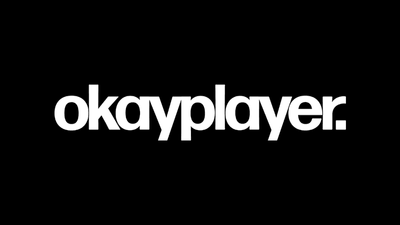'She's Gotta Have It' Writer Responds To John Boyega Criticism
The black British actor had previously called a scene from an episode of the Netflix series "trash."
A writer for the Netflix series She's Gotta Have Ithas responded to a comment John Boyega made on a scene a part of an episode made by the writer.
Barry Michael Cooper, one of She's Gotta Have It's writers, and the one who wrote the episode with the divisive scene — season two's fifth episode "#SuperFunkyCaliFragiSexy" — wrote a letter to Boyega via IndieWire about the scene. The scene features lead Nola Darling (DeWanda Wise) and Olu (Michael Luwoye) debating about black British actors in Hollywood before becoming a discussion on the British's involvement in the transatlantic slave trade.
Upon the scene circulating on social media, Boyega caught wind of it and called it "Trash" on Twitter.
Before speaking on the scene and Boyega's criticism of it, Cooper clarifies that the scene was written by him and not Spike Lee, the creator and executive producer of the series. He then addresses how Darling mispronounces Boyega's name during the scene "not only to be provocative, but to also bracket her riposte with a historical reference."
"Nola's measured diatribe was a means of informing Olu (which also literally aroused him, based on the ferocity of their sex in the following scene), and to stir the viewers, too," Cooper writes. "I wanted to write a scene that would inspire a Transatlantic and intra-racial discussion about slavery and the emotional keloids that continue to scar the African diaspora to this very day."
From there, the writer explains that the exchange was inspired by comments Samuel L. Jackson made during a March 2017 Hot 97 interview, and a response black British actor David Harewood offered following the interview.
Per IndieWire:
When asked about Jordan Peele’s landmark film “Get Out,” Jackson had an immediate take. “I know the young brother that’s in the movie…he’s British,” Jackson said, referring to the star of the film, Daniel Kaluuya. “There are a lot of black British actors that work in this country all the time. I tend to wonder…what would a brother from America have made of that role?”When Ebro asked Jackson what he believed created the phenomenon of Afro-Brits playing African American roles, Jackson laughed and said, “They’re cheaper than us, for one thing. They don’t cost as much … and they think they are better trained than we are. I don’t know what that love affair is all about, but it’s all good. Everybody needs the work. But it’s a lot of brothers here who need the work, too.”
Jackson’s sentiment didn’t sit well with storied Afro-Brit actor David Harewood. His portrayal of the sophisticated and invidious CIA Deputy Director “David Estes” in Showtime’s “Homeland” was a powerful character study of subdued menace. His essay in The Guardian repudiated Jackson’s assessment of black actors from the UK. “Perhaps it’s precisely because we are not real American brothers,” Harewood wrote, “that we black British performers have the ability to unshackle ourselves from the burden of racial realities — and simply play what’s on the page, not what’s in the history books.”
"Nola's quip that Olu was a victim of 'Stockholm syndrome,' was a direct hit on Harewood's apparent obliviousness to the actual history of the enslavement of Africans in the UK," Cooper writes. "Conversely, Jackson’s initial statement about black actors in the UK may have sounded unnecessarily harsh to my brothers and sisters across the pond. My point is, the remarks of both Jackson and Harewood became the wellspring for the fiery exchange between Nola Darling and Olu Owoye. It’s not something I made up. The scene I wrote in this episode of 'She’s Gotta Have It' was meant to be combustible."
Cooper ends his response by hoping the scene and Boyega's comment "will get our family in the diaspora to talk to each other, and more importantly, to listen to each other."
The essay can be read in its entirety here.
